“In the dominator system, the blade is the metaphor for power: a symbol of power to dominate, exploit and take life. In the partnership system, the metaphor for power is the chalice: an ancient symbol of the power to give, nurture, and illuminate life.” – From The Chalice and the Blade (1988) by Riane Eisler, JD.
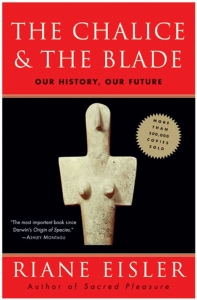 It was June 2015 when Trump announced his candidacy. When he began making his provocative and abusive comments about Mexicans, Muslims, women, and the Chinese, three companies all immediately severed their business arrangements with him. He was quickly dumped by NBC, Univision, and Macy’s.
It was June 2015 when Trump announced his candidacy. When he began making his provocative and abusive comments about Mexicans, Muslims, women, and the Chinese, three companies all immediately severed their business arrangements with him. He was quickly dumped by NBC, Univision, and Macy’s.
At any time in previous elections, media coverage such as this would have been enough to immediately disqualify a candidate. Surely, setting this new low bar for propriety was an entertainment stunt. Surely, he would bow out early as he had done when a candidate in 2008. Surely, the American people would not become mindless by-standers, enabling his disingenuous approach to “winning,” an approach fixated developmentally in the early primary grades.
Daily, however, the media heaped free coverage upon him – to the tune of what some estimated to be a couple billion dollars. As a media consumer, it appeared to me that civility and decency were being unraveled daily in front of us.
The second debate was especially brutal and full of aggressive one-liners and, quite noticeably, no facts. The split screens removed the physical space between the candidates, creating an even greater impression of overly-aggressive behavior. According to Time Magazine, he interrupted the debate 55 times.
Since when had lack of decorum become the “winning” way? This was a new era. It was stunning to think of the pervasive trickle-down effect: The children are watching.
Fast-Forward to 2020
A demagogic figure chose to intentionally “play down” the seriousness of the pandemic – rather than speaking in a straightforward, honest manner to prepare the country for the tsunami obviously heading our way.
Whoever did not see it coming was not paying attention.
“In a real sense, all life is interrelated… Whatever affects one directly affects all indirectly.”
When we could have been preparing, he wasted precious weeks by continuing to call it a “hoax.” Later, he stated to journalist Bob Woodward, author of Rage, that he was “playing it down” – as though he wanted to be remembered as a wise sage.
Of course he knew! Why would we believe that he had not been presented facts about the coming pandemic?!
This self-centered lack of leadership may cause us to soon look back to today as “the good old days.” The deaths of over 204,457 people were largely predictable and preventable.
One death every 11 minutes 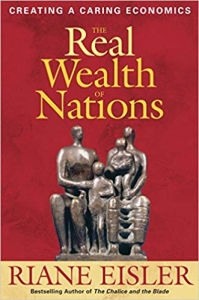
- “It is what it is.”
Tell that to the broken-hearted families who have lost loved ones during the pandemic. As of today – 204,457 families have been grievously affected by premature deaths. One death every 11 minutes. “It is what it is,” he responds with no heart.
- “It affects only elderly people with heart problems,” he states dismissively, disrespectfully – and repeatedly – to the cheering crowds at his rallies.
Tell that to the demographic of “older people.”
- “It affects virtually nobody who is young.”
Who accepts this disinformation campaign?
- “We are rounding the corner. We have done a phenomenal job.”
Fiona Hill describes America in a recent interview as being “viewed with pity, as we eat ourselves alive with division.”
Can partnerism be learned in a chaotic, dominator-led culture?
Riane states in the paper to which this blog post is linking:
“Since it is through childhood experiences and observations that people acquire habits of feeling, thinking, and behavior – authoritarian, male-headed, punitive families prepare people to accept, and even vote for, demagogic leaders who promise authoritarian, male-headed, punitive regimes as the solution to all problems, especially in uncertain times like ours.”
Neuroscience tells us that it is the formative years from birth to age five that are especially critical. In addition, it is from neuroscience that we are learning more about our ability to “re-wire.” We have capacity to change. What we need is awareness, readiness, education – and good role models. Role models to genuinely “care” at the highest levels! Not leaders who mock the disabled, vulnerable, disenfranchised, and oppressed.
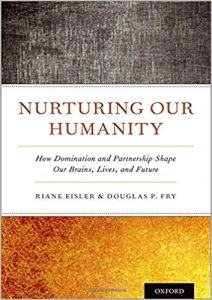 Join the movement to make partnerism mainstream.
Join the movement to make partnerism mainstream.
I support Riane’s work and participate in the campaign. For me, it is now about the generations of young people who may benefit… Those who have witnessed the challenges of their parents and grandparents – in the face of the most daunting challenges imaginable in their young lives.
In adult years, I have been influenced by the work of trail-blazing pioneers and transformative leaders of women. From my side of the mountain, I am adding my voice to a movement which empowers BOTH women and men.
This is Partnerism at work.
“Make Partnerism Mainstream” – a campaign initiated by Riane Eisler, JD, and the Center for Partnership Studies is underway. The work toward a system in which caring for people is highly valued and adequately rewarded requires an investment and reallocation of resources.
Partnerism offers optimism. We don’t need to remain stuck where we are.
1. Partnerism teaches us about the importance of role models affecting behavior. Role models can divide us – or, conversely, they can bring us together. Both are within our capacity.
- Witness the role modeling of basic health practices during COVID.
2. Partnerism can be learned; thus, the importance of investing in pre-school education and awareness programs in all sectors of the economy. It is within our capacity.
- Witness the change which has occurred in organizations where it has been taught.
3. Partnerism promotes change – from high governement levels to our personal relationships. It requires readiness to do the work. It is within our capacity.
- Witness the findings of neuroscience regarding brain health and wellness.
We have capacity for change.
______________________
A scholarly article written by Riane can be found here. It addresses “domination systems,” “top-down control,” and the “high valuing of so-called ‘hard’ or ‘masculine’ traits and activities such as domination and violence…”
- Building a Caring Democracy: Four Cornerstones for an Integrated Progressive Agenda, Author: Riane Eisler, Interdisciplinary Journal of Partnership Studies, 2017.
To learn more – see Riane’s website and the Partnerism website.
Find Riane’s books on Amazon.
: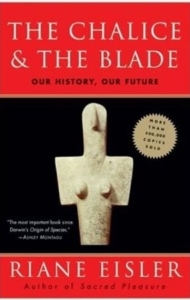 Find on Amazon.
Find on Amazon.
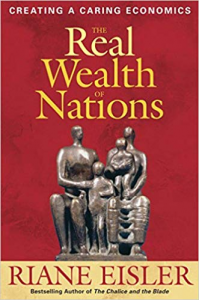 Find on Amazon.
Find on Amazon.
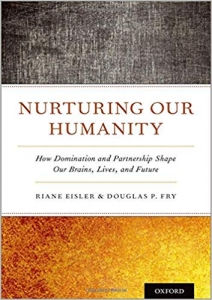 Find on Amazon.
Find on Amazon.
Excerpts of article from physician blog post (January 4, 2017) are included in this article to provide historical context surrounding the November 2016 election.
Author: Susan Troyer


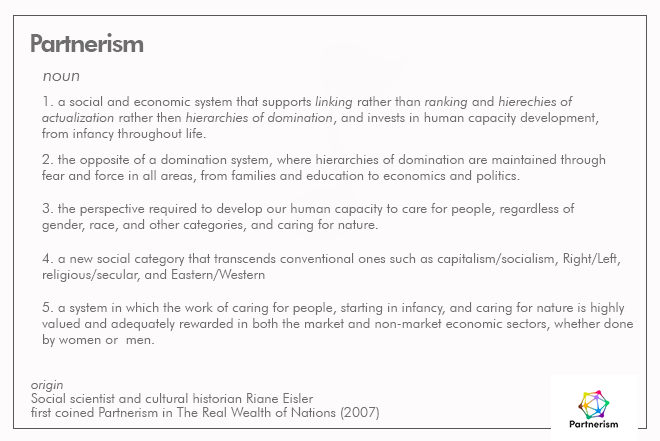
Leave A Comment